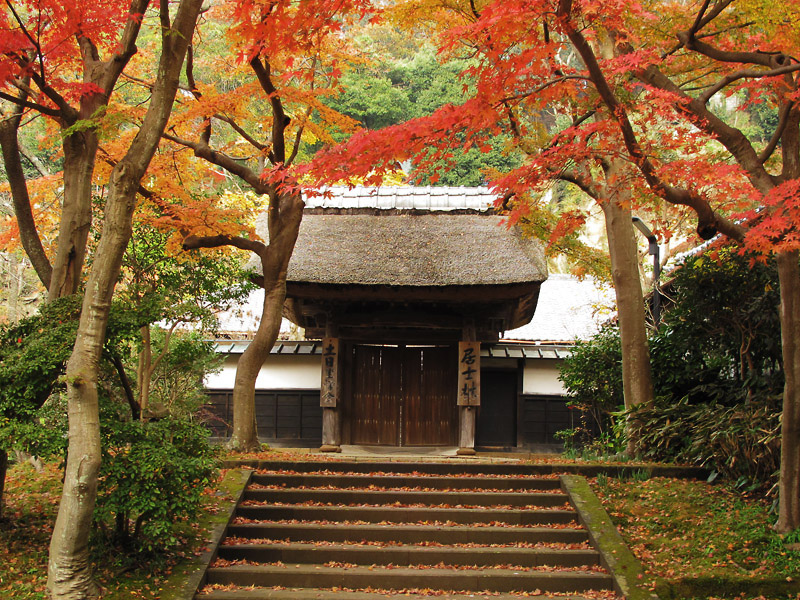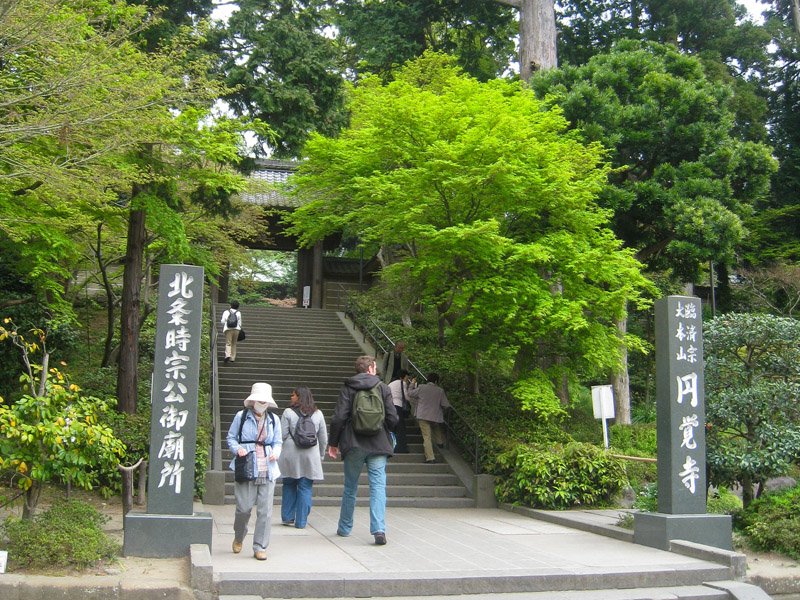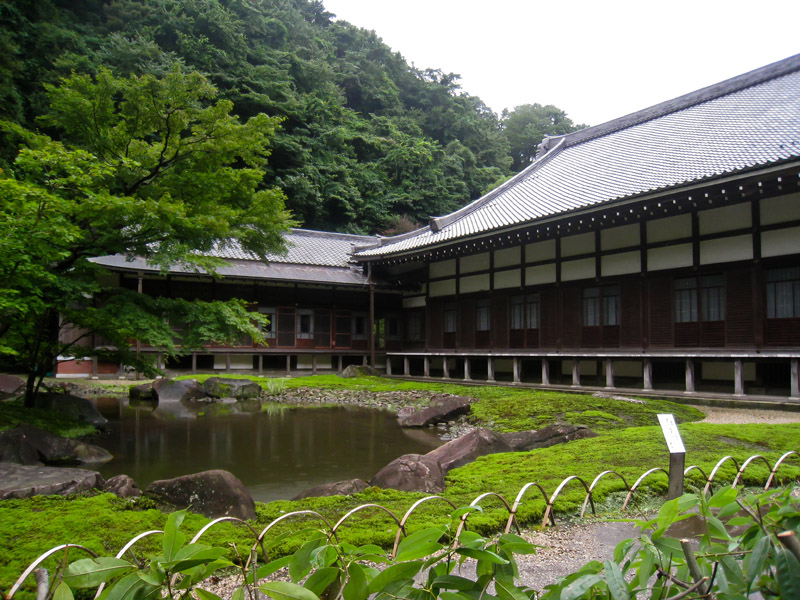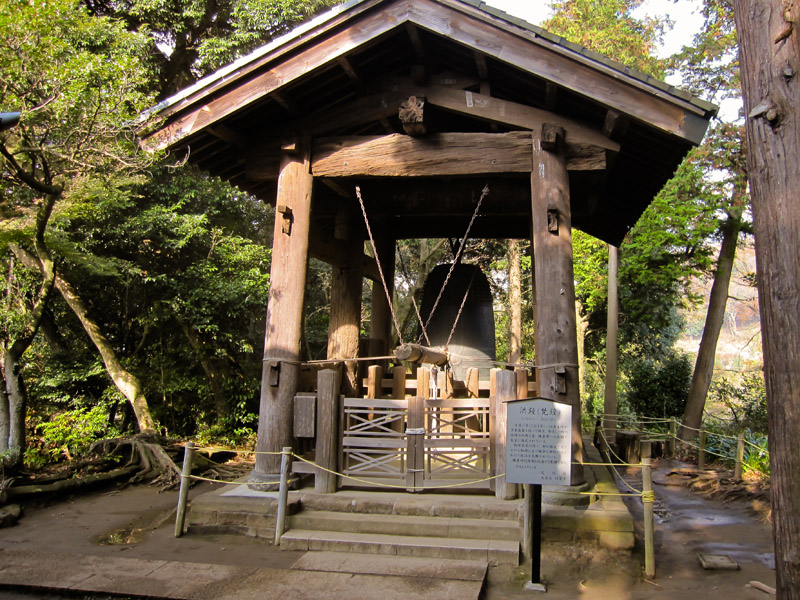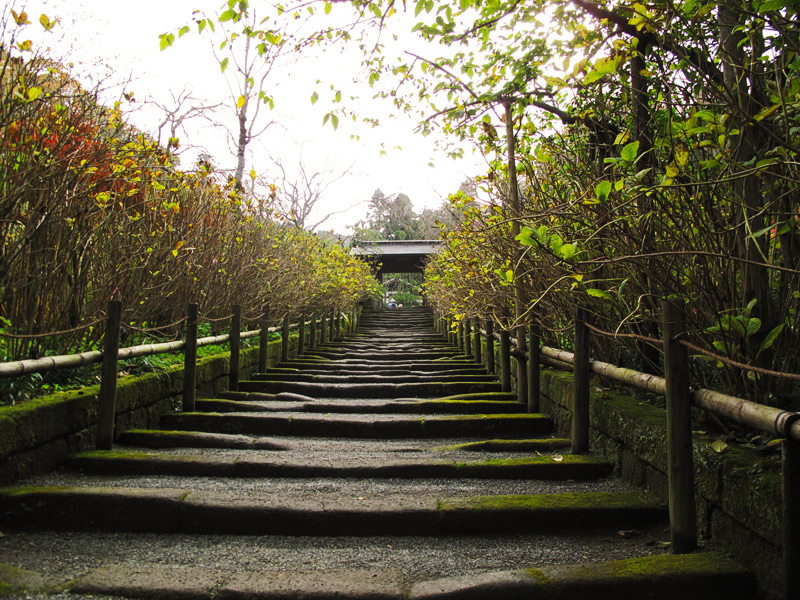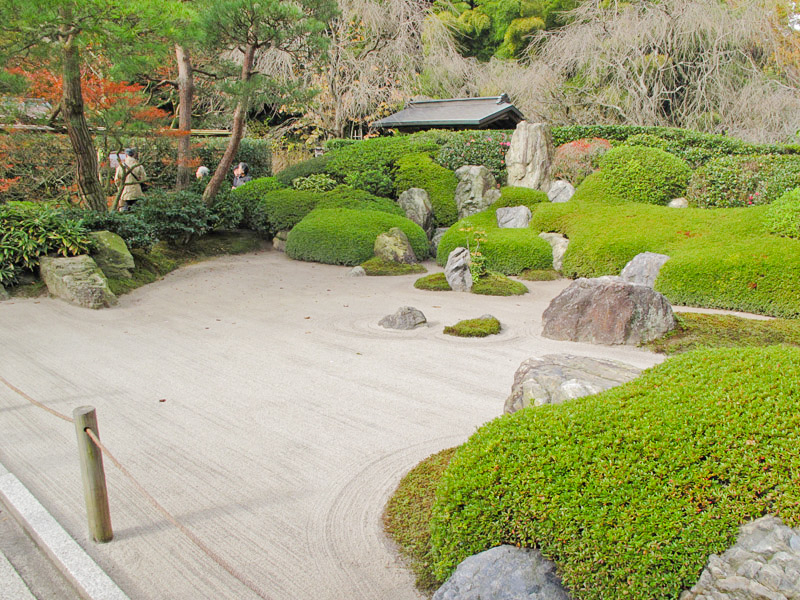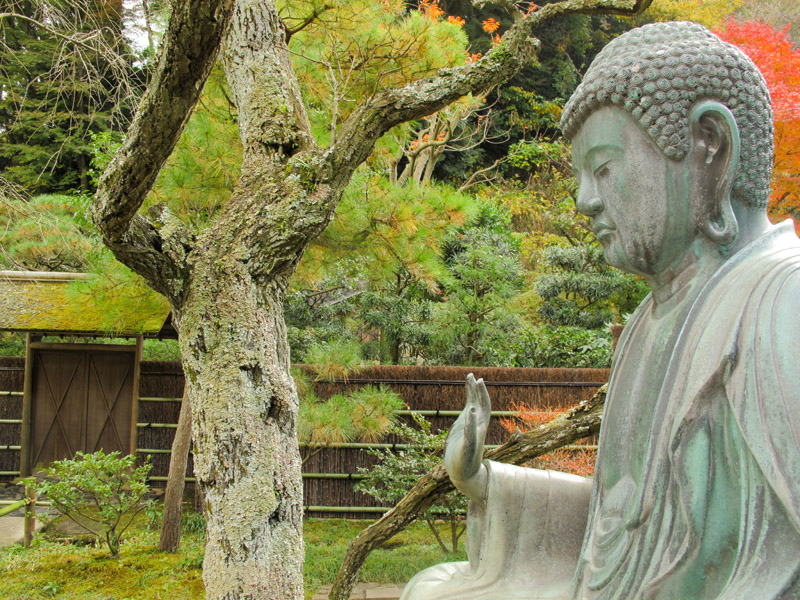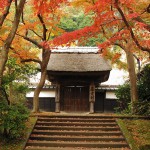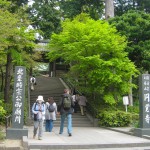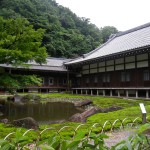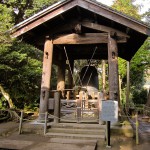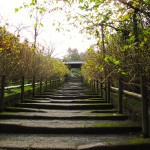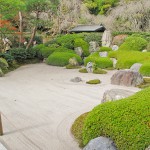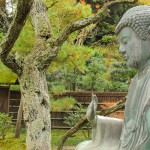An Approach to Zen Temples
SEA007
Kamakura is a former capital and one of the most beautiful cities in Japan. It is surrounded by slightly elevated hills and long sandy beaches. It is also a harmonized city of traditional culture of Zen Buddhism and the tea ceremony and modern culture such as cafes and confectionery shops.
How about visiting historic sites interspersed in Kamakura
and beautiful townscape that has long been protected by national trust and local laws. This program is supported by a tour guide with a thorough knowledge of Kamakura.
ITINERARY
Entrance of Engakuji Temple ->Engakuji->Meigetsuin->Tokeiji->Kita Kamakura Station
Engakuji is ranked second among Kamakura’s Five Mountains.
From the entrance, all the major buildings were built in a straight line. Great Bell is a national treasure. After worshiping the main object at the main hall, you can enjoy nice scenery from the pricincts of Ryuinan located on a small hill and of Hojo (ten feet)
Garden. There is an 800-year old Zen Meditation Hall near a shariden, reliquary hall. This hall still plays an importance functional role to keep healing people’s mind.
Meigetsuin is known as a flower temple. You can view from a round window of a tatami mat room in the main temple a Japanese garden with rocks and sand called karesansui.
The round shape of the window is said to indicate a state of enlightenment of Zen. The garden of karesansui made only of rocks and sand was originally built as a place for training. Also their well is chosen as one of the ten best wells of Kamakura. The sound of dipping water from a well bucket is very soothing. Minute beauty of Japan is felt by flowers arranged in vases located in many places in the precincts.
In Edo era, women were not allowed to get divorced. Japan’s feudal government approved only this convent as a place for women to take shelter and get divorced. This temple stores documents showing long histories of endurance, sorrow, and torments.The following items are on display:
Gold-sprinkled lacquerware, paintings, calligraphic works, ancient documentsA worldly famous Daisetsu Suzuki’s grave is located in the precincts. He wrote a book titled Zen and Japanese Culture.
CANCELLATION POLICY
(1) 14-3 days before the program day: 20 % of the program fee
(2) 2 days before the program day: 50 % of the program fee
(3) one day before, on the departure day, or cancellation without notice: 100 % of the program fee
PROGRAM FEE
- Basic Fee (Per Group)
- 9,700JPY
- Fee per Person
- 4,850JPY
- Age 6 - 11
- 2,950 JPY
Total Price = Basic Fee + Fee per Person * Number of Participants + Tax
- STARTING TIME
-
(1) 9:30~
(2) 13:00~
- DURATION
- 3 hours
- LOCATION
-
Engakuji Temple
Meigetsu-in Temple
Tokeiji Temple
- INCLUSIONS
・Guiding fee
・Admission fee
・Travel expenses during the tour. (For taxis or hired cars, additional fee will be charged.)
- EXCLUSIONS
Lunch, beverages,Travel expenses to the meeting place, Sightseeing activities
- NOTIFICATIONS
◆Please follow the guide's instruction during the program. We shall not be responsible for any accident caused by disregard of the instructions.
◆Please advise us if you have any religious or health restrictions, allergies, or the case where you would like to request a special care for participants, including children. Please email us at info@truejapantours.com to check an availability and share the information.
Please note that any programs booked without an inquiry will not be guaranteed.
◆Our services are mainly offered in English. In addition, services in other languages, such as Chinese, French, Spanish, German, Italian, Russian are also available. In case you would like services in languages other than English, please inquire us at info@truejapantours.com as soon as possible. We
◆Our business hours are from 9:00 am to 6:00 pm on weekdays. For inquiries received outside the business hours, we will look into it and respond on the next business day.
will check an availability.
◆Deadline for booking of this program is 10:00 am of 3 business days (JST) prior to the program date.When booking after the deadline, please email us at info@truejapantours.com to check an availability.
Please note that any programs booked after the deadline without an inquiry will not be guaranteed.
Stocker
BOOKMARKS
- Not available.


